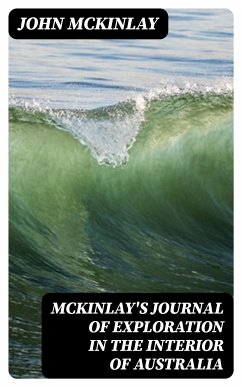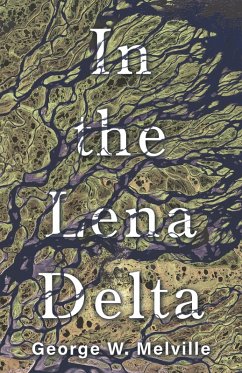
Early Voyages to Terra Australis, Now Called Australia (eBook, ePUB)
Exploring Terra Australis: Maritime Expeditions and Geographical Discoveries
Versandkostenfrei!
Sofort per Download lieferbar
0,49 €
inkl. MwSt.
Weitere Ausgaben:

PAYBACK Punkte
0 °P sammeln!
In "Early Voyages to Terra Australis, Now Called Australia," Richard Henry Major meticulously compiles and analyzes the groundbreaking expeditions that charted the unknown southern land, ultimately known as Australia. Major's scholarly work, written in an engaging yet precise literary style, meticulously documents early navigators' accounts, from the conjectures of classical geographers to the detailed narratives of 17th and 18th-century explorers. This compilation serves not only as a historical record but also as a testament to the evolution of cartographic knowledge and maritime exploration...
In "Early Voyages to Terra Australis, Now Called Australia," Richard Henry Major meticulously compiles and analyzes the groundbreaking expeditions that charted the unknown southern land, ultimately known as Australia. Major's scholarly work, written in an engaging yet precise literary style, meticulously documents early navigators' accounts, from the conjectures of classical geographers to the detailed narratives of 17th and 18th-century explorers. This compilation serves not only as a historical record but also as a testament to the evolution of cartographic knowledge and maritime exploration during the Age of Discovery. Richard Henry Major was an esteemed historian and cartographer whose deep-seated interest in exploration and geography propelled him to delve into the early navigations of Australia. His thorough understanding of historical texts, coupled with his position as a member of societies such as the Royal Geographical Society, equipped him with unique insights, enabling him to illuminate the intersections of adventure, science, and imperial ambition in these narratives. This book is an essential addition for history scholars, maritime enthusiasts, and anyone captivated by the origins of Australia's exploration. Major's work invites readers to traverse the tumultuous seas of historical inquiry, offering a richer understanding of the triumphs and tragedies faced by early explorers, making it both an enlightening and enjoyable read.
Dieser Download kann aus rechtlichen Gründen nur mit Rechnungsadresse in A, B, BG, CY, CZ, D, DK, EW, E, FIN, F, GR, H, IRL, I, LT, L, LR, M, NL, PL, P, R, S, SLO, SK ausgeliefert werden.













